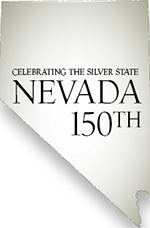Colorful state bird often falls victim by the hundreds to mining pipes
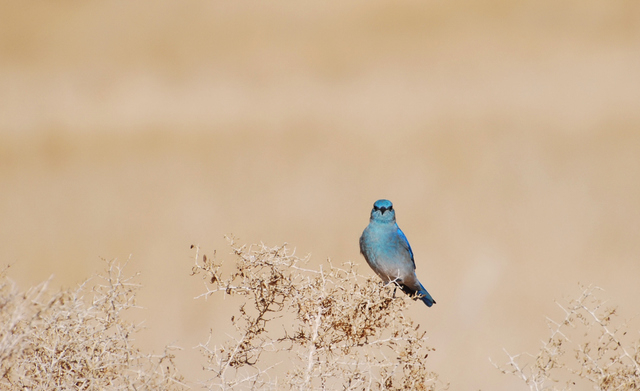
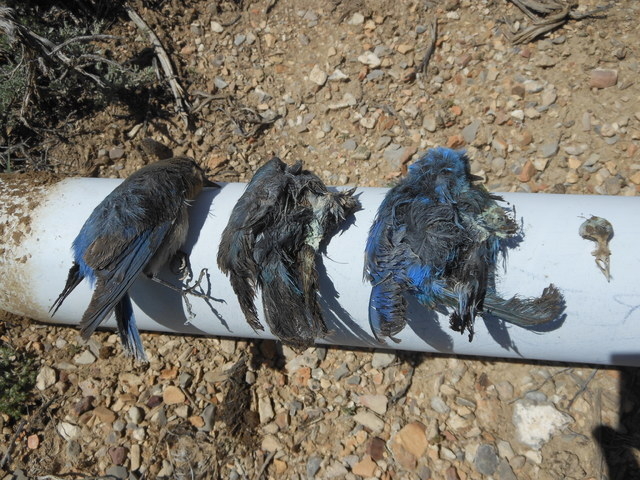
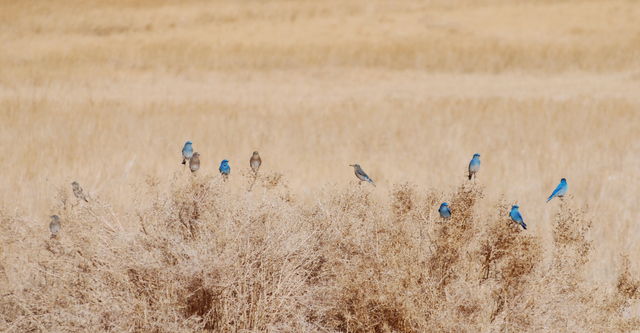
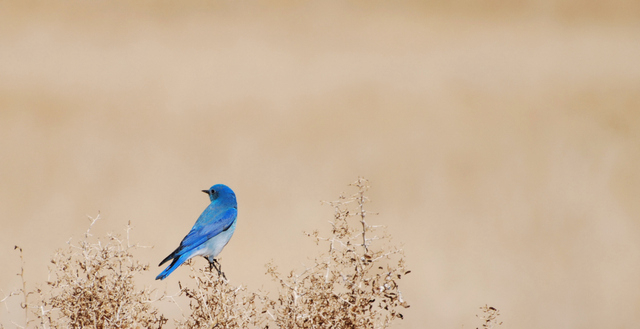
Editor’s Note: Nevada 150 is a yearlong series highlighting the people, places and things that make up the history of the state.
The mountain bluebird is so common in the West that it serves as the official state bird for both Nevada and Idaho.
But there’s nothing common about its flashy blue plumage or about one uniquely Nevada way the birds die each year by the hundreds.
“A lot of people are big fans of mountain bluebirds because they’re such a spectacular color,” said John Hiatt, longtime conservation chairman for the Red Rock Audubon Society.
“It’s readily identifiable by the layperson, and it’s just beautiful,” added Christy Klinger, biologist for the Nevada Department of Wildlife. “I just think it’s a symbol of the American West.”
The Nevada Legislature designated the mountain bluebird as the state bird in 1967, some 36 years after Idaho did.
Roughly the size of a robin, it’s found across Nevada, but it is more common in the north at higher elevations and in transition zones between different kinds of plant communities, Klinger said.
The females are drab brown and the males are bright blue — a shade similar to the cobalt blue of the state flag — that glows with added intensity during breeding season in the late winter or early spring.
A member of the thrush family, the bird nests exclusively in cavities such as hollowed out trees, holes left by woodpeckers and the occasional rock crevice.
“You put a nest box up in mountain bluebird habitat, and they’re going to use it,” Klinger said.
But that behavior coupled with Nevada’s status as one of the world’s most active mining areas has proven fatal for an untold number of mountain bluebirds.
Public land in Nevada is dotted with scores of hollow plastic pipes driven into the ground to mark mining claims. The yawning, 4-inch mouths of the uncapped claim markers are like an open invitation to cavity-nesting birds, which go into the pipes but can’t climb back out or spread their wings to fly. Trapped at the bottom, they slowly die of dehydration.
A state biologist once pulled 32 bird carcasses from a single tube.
Klinger, who heads up a state effort to take down such hollow claim markers, said roughly 32,000 pipes have been pulled from the ground so far, yielding about 11,000 dead birds from 61 different species.
The single largest victim of the little-known hazard is the mountain bluebird, with more than 800 deaths logged to date, she said. “Which is just awful.”
The actual number of birds killed by hollow claim markers is thought to be much higher, perhaps in the hundreds of thousands.
Klinger said the state’s marker-removal campaign, nicknamed the “Bluebird Project,” is “going well,” but it will take years if not decades to make a real dent in the problem. By some estimates, there could be as many as a million mining claim markers scattered across the state, most of them in the north where the mountain bluebird population is highest.
Claim holders started using plastic pipe because it is cheap, lightweight and bright white, making it easy to carry into remote areas and easy to spot from a distance.
Nevada lawmakers in 1993 outlawed the use of uncapped pipes as mine markers, but the practice continued.
In 2009, state wildlife officials and Audubon Society members lobbied for legislation that gave miners two years to remove the plastic pipes from their claims. On Nov. 1, 2011, it became legal for anyone on public land to pull down uncapped plastic tubes from mining claims and lay them on the ground where they find them.
Luckily, Klinger said, mountain bluebirds are so plentiful that mine claim markers pose no real threat to their overall survival. It’s a terrible way for a bird to die, but it’s not going to drive Nevada’s official bird to extinction.
“It’s really a pretty common bird,” she said. “Common but beautiful.”
Contact reporter Henry Brean at hbrean@reviewjournal.com or 702-383-0350. Follow him on Twitter at @RefriedBrean.



